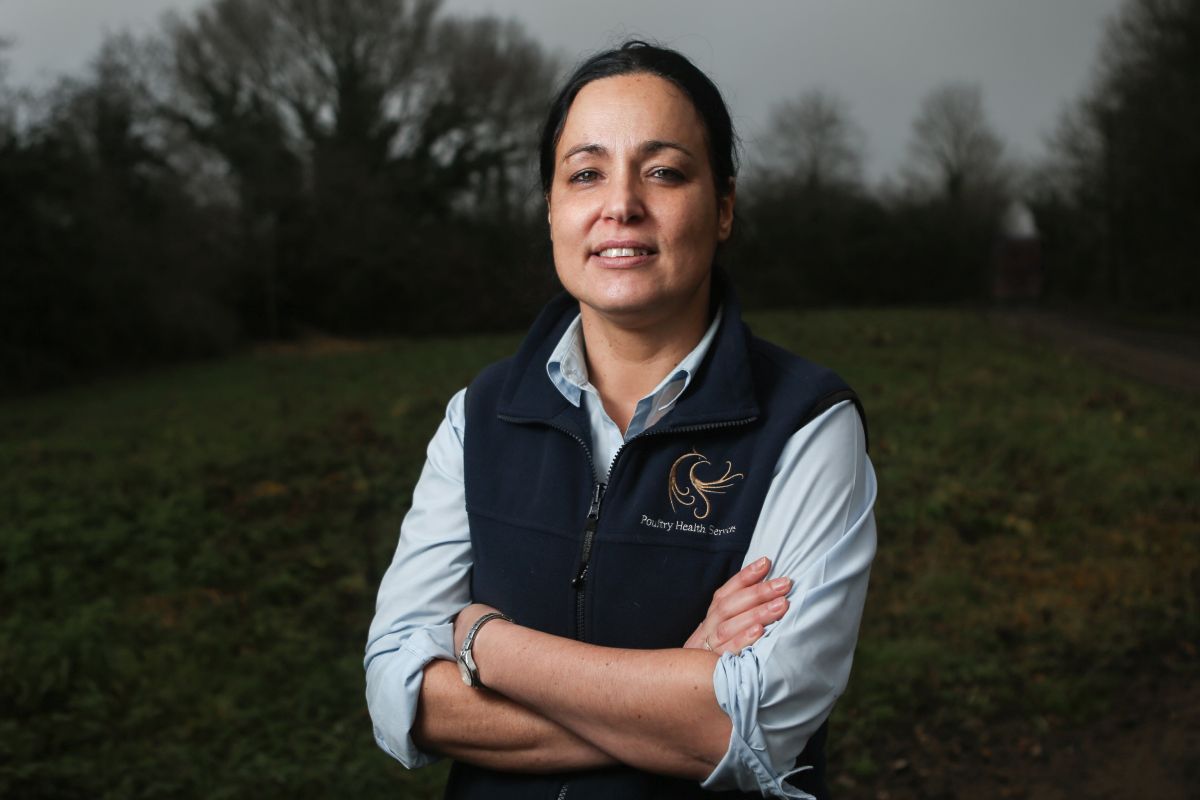
Egg industry leaders have welcomed a decision to implement a housing order to protect the country from highly pathogenic avian influenza.
The Government's chief vet announced a housing order covering the whole of England. Similar orders were implemented by the devolved Governments of Scotland and Wales to protect against the possible spread of avian influenza from other countries in mainland Europe.
At the time the orders were made AI had not been found in the United Kingdom. However, H5N8 bird flu has since been confirmed on a turkey farm near Louth in Lincolnshire.
The housing orders were made in response to calls from the poultry sector. It wanted free range birds housed as a precaution against high path H5N8, which had been discovered in wild birds in Austria, Croatia, Denmark, Finland, France, Germany, Hungary, Netherlands, Poland, Romania, Sweden, Switzerland, Ukraine and the Russian Federation. There were fears that migrating wildfowl could carry the virus to the United Kingdom and infect free range units.
Chief veterinary officer Nigel Gibbens said at the time: "We are closely monitoring the situation across Europe and have scaled up surveillance in response to the heightened risk.
"As a precaution, and to allow time for poultry and captive bird keepers to put in place appropriate bio-security measures, we have declared a 30-day prevention zone to reduce the risk of infection from wild birds.
"Even when birds are housed, a risk of infection remains so this must be coupled with good bio-security - for example disinfecting clothing and equipment, reducing poultry movement and minimising contact between poultry and wild birds," he said.
'Free range status is safe'
The British Free Range Egg Producers Association (BFREPA) is one of the organisations that called for birds to be housed. An official housing order means that the birds' free range status will be maintained for the duration the order.
The association's chief executive, Robert Gooch, said: "We support the housing order, although we are conscious that there could be some stress amongst members' birds that are ranging freely. Producers may need to think about extra enrichment and inspections."
He stressed that members would not lose their free range status. Some members had contacted the association concerned about this, but Mr Gooch said producers could be assured that free range status was safe.
Mark Williams, chief executive of the British Egg Industry Council (BEIC) and chairman of the Poultry Health and Welfare Group (PHWG), said: “The Poultry Health and Welfare group welcomes Defra’s decision to bring in enhanced bio-security requirements for poultry and captive birds, including temporarily housing poultry in England.
“The poultry industry has been liaising closely with Defra to ensure we are best prepared should the risk of bird flu heighten, and contingency plans are in place and under constant review. Most birds can be taken inside their houses within a matter of hours. Where birds like geese and game can’t be housed, measures will be put in place to ensure separation from wild birds.”
Farmers urged to take reasonable measures
Gary Ford, NFU chief poultry adviser, said many NFU members, particularly on the Eastern side of the country, have been calling for such a decision for 'several weeks' now, as the risk posed by AI in the migratory wild bird population throughout Europe to the commercial poultry sector has increased.
He said: "Where it will not be possible practically to house all free range birds, farmers are urged to take reasonable measures to prevent contact with wild birds. Given that this is a mandatory housing requirement, producers will be able to retain their free range status – both eggs and poultry meat – for a period of up to twelve weeks from the date of the decision, although the zone is, currently, for 30 days only.”
The Government had previously resisted appeals from the British poultry industry to order that free range birds be housed. At a recent avian influenza roadshow event organised by the industry's Poultry Health and Welfare Group, Gary Ford said that at that time Defra had concerns about going ahead with such an order.
He said Defra felt there was a lack of clear evidence that housing free range birds was an effective disease mitigation measure. There was also a concern that housing birds used to ranging could have an impact on their health and welfare if they were no longer allowed to range.
